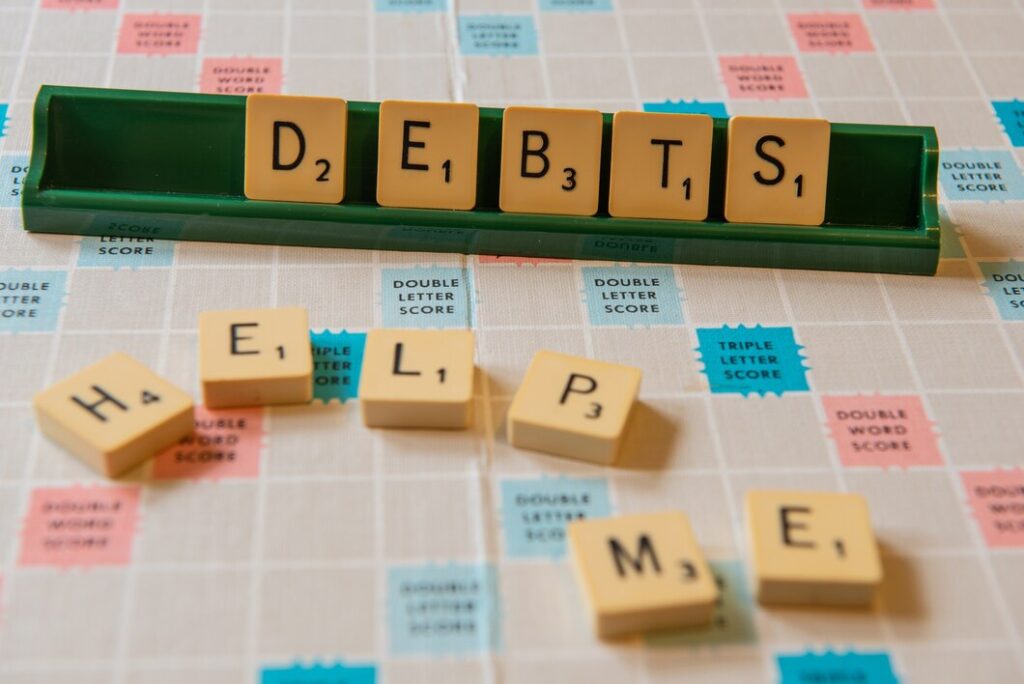Are you drowning in debt and struggling to achieve financial freedom? You’re not alone. Many individuals find themselves burdened by debt and unsure of how to break free from its grasp. But don’t despair, because there is hope. With the right strategies and a commitment to financial discipline, you can conquer your debts and the way to a brighter financial future. In this post, we’ll explore effective ways to get out of debt, reduce interest, and ultimately achieve your financial goals and freedom. So let’s dive in and learn how to take control of your finances.
Understanding Your Debt Situation
It’s crucial to be fully aware of your financial obligations, including any student loans, credit card debt, or personal loans. Understanding the total amount of debt and its impact on your personal finance is essential for creating an effective debt management plan. Start by listing out all your liabilities, such as mortgage payments and credit card balances. Consider seeking guidance from a credit counselor to assess your situation and determine the best way to tackle your debt. By understanding your debt situation, you can lay the groundwork for developing a solid debt relief strategy and ultimately improving your financial health and achieving financial freedom.
Importance of being aware of your debt details
Awareness of your debt details is crucial for devising a solid repayment strategy. Understanding the specific details of your debts empowers you to prioritize repayments effectively and identify opportunities for debt consolidation or refinancing. Having a clear picture of your debt enables informed decision-making and strategic financial planning, preventing missed payments and potential penalties. Being mindful of the details of your debt allows for proactive management, setting the stage for a more stable and secure financial future.
How to list out your debts effectively
To effectively list out your debts, start by creating a comprehensive inventory of all your financial obligations, including credit cards, loans, and other liabilities. Organize this list by detailing creditor names, outstanding balances, interest rates, and minimum payments. It’s important to prioritize the listing based on factors such as interest rates, total balance, or due dates to better manage your debts. Regularly updating and reviewing your debt list allows you to track progress and stay focused on your financial objectives. Ultimately, effectively listing out your debts and understanding your credit report provides a clear overview of your financial obligations, aiding in better debt management and personal finance.
What are some effective strategies for getting out of debt?
Some effective strategies for getting out of debt include creating a budget, cutting expenses, increasing your income, prioritizing debt repayment, and seeking professional help if needed. It’s important to have a plan and stick to it to successfully get out of debt and achieve financial freedom.
Budget and Expenses
Revising your budget to handle debt requires developing a thorough understanding of your earnings and spending habits. This will enable you to prioritize debt payments and use resources efficiently. It is essential to reduce unnecessary expenses to free up more funds for repaying debt and speed up the process. By closely examining your spending patterns, you can pinpoint areas where costs can be minimized, thus supporting your debt management strategy.
Adjusting your budget to manage debt
In order to manage debt effectively, it is important to set aside a dedicated portion of your income for repaying debt within your budget. Prioritizing debt payments requires making changes to discretionary expenses and non-essential spending. This is essential for sustaining a debt repayment plan and making steady progress towards financial freedom. Adjusting your budget to handle debt is crucial for reaching financial objectives and decreasing debt. These budget adjustments are essential for maintaining a well-rounded approach to personal finance and debt management.
Cutting down unnecessary expenses
Assessing and decreasing optional expenses is vital in releasing funds for paying off debt. Introducing measures to reduce costs can speed up debt repayment, resulting in enhanced financial stability. This helps in creating a more effective debt repayment plan and promoting long-term financial well-being. Simplifying expenses helps in creating a well-rounded financial strategy and efficient debt control. By recognizing and reducing unnecessary spending, individuals can allocate resources more effectively towards reducing debt and achieving their overall financial objectives.
Debt Reduction Strategies
Strategies for Reducing Debt:
When aiming to reduce debt, it’s helpful to explore the Debt Snowball Method and Debt Avalanche Method. The first method focuses on paying off the smallest balance first, while the second prioritizes the highest interest rate. Both methods can provide motivation and momentum. Additionally, seeking guidance from a credit counselor for a debt management plan or consolidating debt through a personal loan or home equity can be advantageous. It’s important to evaluate the debt amount, set a minimum amount to put towards debt each month, establish a practical plan, and consider professional advice to attain financial freedom.

The Debt Snowball Method Explained
The Debt Snowball Method Explained
The debt snowball method is based on the principle of paying off debts starting from the smallest balance and progressing to the largest. This approach offers psychological and motivational advantages by beginning with the smallest debt, which generates momentum for addressing bigger financial responsibilities. The method’s focus on early debt victories encourages a feeling of achievement and advancement in debt repayment, thereby boosting confidence throughout the process. By applying the debt snowball method, individuals can witness concrete outcomes as they strive to achieve freedom from debt.
The Debt Avalanche Method: How it Works
The debt avalanche method involves prioritizing debt repayment based on highest interest rates to minimize overall interest payments. This strategic approach leads to significant interest savings over time and optimizes the financial impact of debt reduction efforts. By targeting high-interest debt first, the debt avalanche method efficiently eliminates debt and helps achieve financial freedom, ultimately saving the most money in the long run.
Enhancing Your Debt Payments
To improve your debt payments, try to earn more money through side hustles or reduce your debt with unexpected windfalls. You can also make biweekly payments and negotiate better interest rates with creditors to save money on interest. Seeking advice from a credit counselor and implementing a debt management plan, such as credit counseling, can also help you pay off your debts effectively. By managing your debt efficiently, you can work towards achieving financial freedom.

Strategies to increase your payment amount
To pay off debts, put extra income towards debt repayment. Use windfalls, tax refunds, or side job earnings to pay off debt. Spend less and allocate surplus funds towards paying off debts. Review monthly expenses and reallocate extra funds for debt payoff. Follow the debt snowball method for structured repayment.
Importance of paying more than the minimum payment
When managing debt, it’s crucial to go beyond the minimum payment amount. By doing so, you can effectively reduce your credit utilization ratio, quicken debt repayment, and minimize interest expenses. Making regular extra payments not only accelerates the journey to becoming debt-free but also enhances overall financial well-being. This approach significantly diminishes the total interest paid and reduces the time required for debt payoff. Moreover, consistent additional payments play a pivotal role in mitigating the negative impact of credit utilization ratio, thereby contributing to improved credit health.
How Can Debt Impact Your Financial Freedom?
Debt can have a significant impact on your financial freedom. It limits your options by tying up a portion of your income and can quickly accumulate with high-interest rates. Additionally, debt can harm your credit score, making it harder to obtain future loans or credit. By paying off debt and managing your finances wisely, you can achieve true financial freedom.
Conclusion
In conclusion, getting out of debt is a crucial step towards achieving financial freedom. By understanding your debt situation and creating a budget, you can effectively manage your expenses and start reducing your debt. Implementing debt reduction strategies like the Debt Snowball Method or the Debt Avalanche Method can expedite the process. It’s also important to enhance your debt payments by increasing the payment amount and paying more than the minimum. Remember, being debt-free not only improves your financial well-being but also allows you to have more control over your future. If you’re ready to take control of your finances and achieve financial freedom, subscribe to our newsletter for more helpful tips and strategies.
Image credits: Image by pch.vector on Freepik , Image by wirestock on Freepik, Image by kues1 on Freepik













